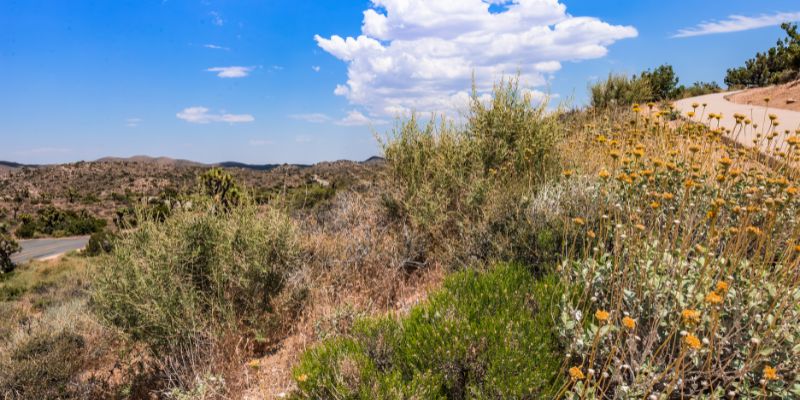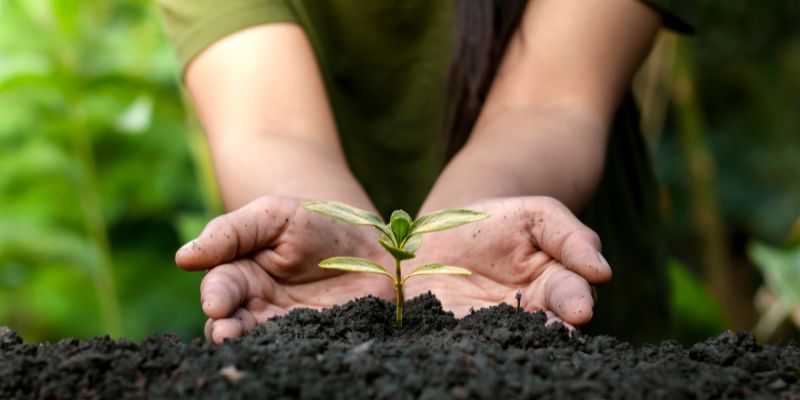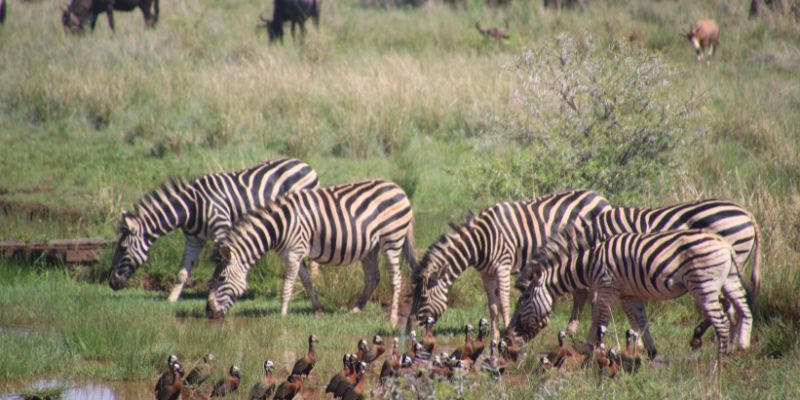Fascinating and Important Facts About Conservation
The planet we live on is an incredible place that is full to the brim with astounding landscapes, captivating creatures, and deep and mysterious underwater environments. We humans are lucky enough to be the custodians of Earth, though it must be said we’re not doing the best job collectively.We have all heard about the need for conservation to protect the planet, but how drastic is the situation really? To shed light on this, we’ve listed some fascinating and important facts about conservation, to help it hit home just how much we all need to play our part to make a difference.
What Is Conservation and Why Is It Important?
We all know the concept of conservation. If someone were to say they were conserving their energy, you’d know they are protecting themselves by resting to save their energy for future use. It’s the same concept when it comes to resources, the environment and the life that exists within it. Conservation is the controlled management of these elements, so nothing gets ‘used up’, or in other words, becomes extinct. This is incredibly important because these elements are vital to our existence. The depletion of any form of life or resource can have a significant negative knock-on effect to the rest of life on Earth.
For example:
- Damaged habitats – having fewer trees lessens the ability to naturally remove carbon dioxide (CO2) from the atmosphere. Burning forests also release CO2, further adding to global warming
- Animal extinction – has a ripple effect through other animals and plants in their ecosystem by knocking the balance in the food chain, potentially leading to further endangerment and species extinction
- Fuel and mineral depletion – when burned, fossil fuels release harmful gases which contribute to global warming and climate change. Plus, many resources are non-renewable so must be used sparingly
The following conservation facts will further reiterate the damage currently being caused by human activity and why you too need to live in a more sustainable way.

Wildlife Conservation Facts
While you may love a walk in nature or looking out of your window at the wildlife roaming in your garden, these facts about wildlife conservation will help you realise the threats that exist to the life all around you.
Facts About Animal Conservation
Did you know these animal conservation facts? - The UK had a healthy population of brown bears only 7,000 years ago. They sadly went extinct around 1,000 years ago because of habitat loss and human persecution
- Bald eagles almost went extinct from the use of a pesticide. Now a banned substance, the eagles have since been removed from the endangered list
- Amphibians, birds, fish mammals and reptiles saw a 68% drop in their populations between 1970 and 2016
- Species extinction is happening faster now than ever before
- Over a million species are declared ‘at risk’ of becoming extinct
Facts About the Conservation of Plants
These facts about the conservation of plant diversity are just as startling: - It’s estimated almost 40% of plants are now at risk of extinction
- Around 600 plant species have become extinct in the wild in the past 250 years. That’s more than double the number of extinct amphibians, birds and mammals combined!
- Plant extinction would happen about 500 times slower if humans didn’t exist
- All life on Earth depends on plants to breathe and eat, so saving critical plant species is essential

Facts About Nature Reserves
Thankfully, nature reserves – which are protected areas for flora and fauna to thrive – have been set up to regain the balance in species populations. Did you know these interesting facts about conservation areas?
- Across the globe, over 100 countries collectively protect over 1,000 national parks and wildlife preserves
- A whopping 2 million square miles of our planet is protected, while initially impressive, that’s just 3% of the planet's land area!
- Besides giving wildlife an undisturbed place to live, nature reserves provide study and research opportunities so we can better understand how to give different species what they need to thrive
Marine Conservation Facts
Did you know these marine and ocean conservation facts? - Freshwater species are declining faster than all other wildlife species – 84% of freshwater species populations have been lost globally since 1970!
- With millions of metric tons of plastic waste being dumped in our oceans each year, it’s thought by 2050, the ocean plastic will outweigh the fish in them!
- The plastic waste issue is so bad, that there are enormous masses of plastic floating around. These are so big some of them have actually been named, like The Great Ocean Garbage Patch – estimated to hold 1.8 trillion pieces of rubbish!
- Once broken down, plastic waste is ingested by fish and then humans
- Healthy oceans are important as they help regulate climates and reduce the negative effects of climate change
Rainforest Conservation Facts
These facts will make you see why conservation and education in the rainforest are so important: - Like oceans, rainforests help prevent climate change by regulating global temperatures and local micro-climates
- Deforestation and forest loss caused by humans means rainforests now emit more carbon than they absorb
- While now only covering 3% of the planet, rainforests house over half the world's terrestrial animal species
- If we didn’t have rainforests, we wouldn’t have most medicines
- Every minute we lose rainforest space that would cover 40 football fields

Environmental Conservation Facts
These environment conservation facts certainly help put the situation into perspective! - If compared to a calendar year, in the 37 minutes modern humans have existed they’ve consumed one-third of the globe’s natural resources in just 0.2 seconds!
- The urban human population will produce three times the waste it does now by 2100
- Mining is thought to be the world’s number one toxic polluter
- The planet is warmer now than it has been in 800,000 years
- 50% of all carbon emissions come from the richest 10% of the population
How You Can Help Protect the Planet
There are many ways you can become a better custodian of our planet and get involved in the efforts to reverse climate change. Some ideas include:
- Following the three ‘R’s – reduce, reuse, recycle
- Get involved with community clean-ups
- Use less water where possible
- Make smart, sustainable food choices
- Buy sustainable products
- Plant trees and other beneficial plants in your garden
- Walk and cycle instead of driving
- Study conservation and educate others
Study Conservation Online
Animal Courses Direct are an online course provider offering Ofqual regulated courses in conservation. Being online, you can study these as and when you please, so there are no worries about fitting your education around your schedule. Our online Level 3 Diploma in Sustainable Wildlife Conservation and Biodiversity Management is particularly beneficial, as it has been designed to suit those working, or wanting to work, in careers related to biodiversity management and wildlife conservation.
Through this fascinating course, you will learn about everything from the principles of conservation ecology to the pivotal role of biodiversity in the natural world. The course also includes a 2-week practical training placement in a Game Reserve in South Africa where you get the chance to be exposed to a cross-section of eco-systems and learn about a variety of wildlife and conservation techniques.
Find out more today by calling our Course Experts on 01202 006 040 or speaking with us online. Alternatively, you can read more in our blog or click below to view our online conservation courses in more detail.
Also, if you adore animals, you can keep track of all upcoming animal awareness days and events with our FREE calendar! Download it here.
(3).jpg)
















